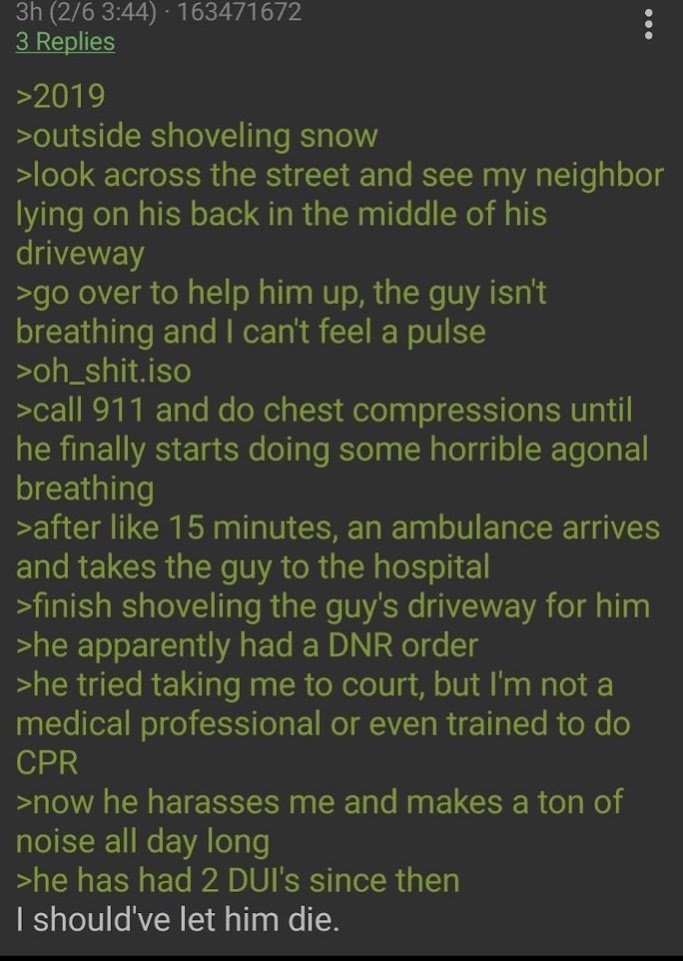this post was submitted on 09 Sep 2024
680 points (99.3% liked)
Greentext
4415 readers
1179 users here now
This is a place to share greentexts and witness the confounding life of Anon. If you're new to the Greentext community, think of it as a sort of zoo with Anon as the main attraction.
Be warned:
- Anon is often crazy.
- Anon is often depressed.
- Anon frequently shares thoughts that are immature, offensive, or incomprehensible.
If you find yourself getting angry (or god forbid, agreeing) with something Anon has said, you might be doing it wrong.
founded 1 year ago
MODERATORS
you are viewing a single comment's thread
view the rest of the comments
view the rest of the comments

First responder here. The DNR doesn't mean a damn thing until it is literally in your hands. Until that time you respond as though there is no DNR. If you're wrong and they did have one but just didn't have it on hand then you accidentally save someones life, you're still legally in the clear, and I guess they can just die sometime later. But if the DNR turns out not to be real/legitimate and you didn't act just because you were told there was one then you just killed someone and you're completly fucked.
If you have a family member that has a DNR then be damn sure everyone knows where that thing is because unless you have it physically there when they are dieing then it doesn't mean anything.
Of course in places like nursing homes there is a different procedure. They know who has one on file and they will usually tell dispatch about it before the ambulance is even sent. But if it happens just in your home or someplace then the ambulance crew can't just take your word for it; they need the document in hand.
How does the DNR get into the first responder's hand in practice? Do you get an emergency call and drive there as fast as you can through red lights with your siren on only to be greeted by a relative that made the call handing you the DNR document?
Are you responsible for validating its legitimacy while in the field, when every second counts?
You've usually planned out the end with your partner/family/caretaker if you have a DNR and they would more than likely be ready to produce your DNR (and medical history) when you need to call an ambulance or go to a hospital for any reason.